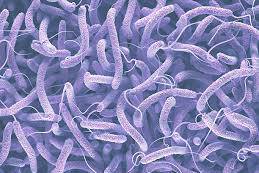Cholera: Causes, Effects, Prevention
Causes of cholera , effects and how to prevent
Cholera is an infectious disease caused by the bacterium Vibrio cholerae. It is primarily transmitted through contaminated water and food. Here are the causes, effects, and preventive measures for cholera:
Causes of Cholera:
Contaminated Water: Cholera bacteria can survive in water sources contaminated by human feces, typically in areas with inadequate sanitation or where sewage mixes with drinking water supplies.
Poor Sanitation: Lack of proper sanitation facilities, including inadequate sewage systems and toilets, increases the risk of cholera transmission.
Unhygienic Food Practices: Consuming raw or undercooked seafood, especially shellfish, caught from contaminated waters can introduce the bacteria into the human body.
Person-to-Person Transmission: Cholera can spread from an infected person to others through direct contact with fecal matter or vomit.
Effects of Cholera:
Severe Diarrhea: Cholera infection leads to rapid onset of profuse watery diarrhea, which can result in dehydration and electrolyte imbalances.
Dehydration: The excessive loss of fluids and electrolytes through diarrhea can lead to severe dehydration, which can be life-threatening if left untreated.
Electrolyte Imbalance: Cholera disrupts the balance of electrolytes in the body, such as sodium, potassium, and chloride, which are essential for proper bodily function.
Malnutrition: Prolonged cholera infection can result in malnutrition due to the inability to retain necessary nutrients and electrolytes.
Organ Failure: In severe cases, cholera can cause kidney failure, shock, and even death if not promptly treated.
Prevention of Cholera:
Safe Water Practices: Access to clean and safe drinking water is crucial. Boiling, filtering, or using water disinfection methods like chlorination can help eliminate cholera bacteria.
Sanitation Improvement: Proper sanitation facilities, including adequate sewage systems and toilets, should be established to prevent contamination of water sources.
Personal Hygiene: Regular handwashing with soap and clean water, especially before handling food or eating, can help prevent cholera transmission.
Safe Food Practices: Consuming properly cooked food, washing fruits and vegetables with clean water, and avoiding raw or undercooked seafood from potentially contaminated sources can reduce the risk.
Vaccination: In areas with a high prevalence of cholera, vaccination can be recommended to provide additional protection against the disease.
Health Education: Public awareness campaigns and education about the causes, symptoms, and prevention of cholera can help individuals and communities take appropriate measures to prevent the spread of the disease.
It is important to note that if you suspect you or someone else has cholera, immediate medical attention should be sought for diagnosis and treatment.



No comments yet
Be the first to share your thoughts!